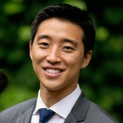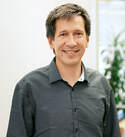
Tom Kalil is Chief Innovation Officer at Schmidt Futures. In this role, Tom leads initiatives to harness technology for societal challenges, improve science policy, and identify and pursue 21st century moonshots. Prior to Schmidt Futures, Tom served in the White House for two Presidents (Obama and Clinton), helping to design and launch national science and technology initiatives. From 2001 to 2008, Kalil was Special Assistant to the Chancellor for Science and Technology at UC Berkeley. In 2007 and 2008, Kalil was the Chair of the Global Health Working Group for the Clinton Global Initiative, where he developed new public and private sector initiatives. Prior to joining the Clinton White House, Tom was a trade specialist at the Washington offices of Dewey Ballantine. He also served as the principal staffer to Gordon Moore in his capacity as Chair of the SIA Technology Committee. Tom received a B.A. in political science and international economics from the University of Wisconsin at Madison, and completed graduate work at the Fletcher School of Law and Diplomacy.

Adam Crawley is a program officer at Ending Pandemics, a philanthropic entity that provides scientific, technical, and financial support to find outbreaks faster no matter where they might emerge on the planet. Adam provides project oversight and technical support to the Ending Pandemics team and its partners, including data analysis, surveillance system design, and documentation of Ending Pandemics' impact. Prior to Ending Pandemics, Adam served as interim supervising epidemiologist at the San Mateo County Health System in California and as a senior research associate at the UC Berkeley Center for Infectious Diseases and Emergency Readiness. Adam holds a Bachelor of Arts in international politics from the University of Rhode Island and a Masters of Public Health from the UC Berkeley School of Public Health, with a concentration in Infectious Diseases and Vaccinology.

Leo Ferres is an associate professor of computer science at the Data Science Institute, Universidad del Desarrollo in Santiago, Chile, and a Fellow of Telefónica Research & Development, also in Santiago. He has published widely in high-performance computing, computational social science, using mobile and telephony data for social good, and data mining in general. Together with UNICEF, the ISI Foundation, and The GovLab, he is now investigating issues pertaining to gender and gender gaps, social inclusion at the city scale, and news diffusion using mobile phone data.

Claudia Juech is the founding Executive Director of the Cloudera Foundation, which will use Cloudera’s expertise in data analytics and machine learning to change people’s lives for the better. Previously, Claudia was an Associate Vice President at the Rockefeller Foundation, leading the organisation’s Strategic Insights division. Working with grantees and partners around the globe, she and her team used data and information to identify large-scale opportunities to address economic inequality and critical challenges in the areas of health, the environment, and in cities. Prior to joining the Rockefeller Foundation in 2007, Claudia was a Vice President at DB Research, Deutsche Bank’s think tank for trends in business, society and the financial markets. She has a degree in Information Science from Cologne University of Applied Sciences and an International MBA from the University of Cologne.

Chaya Nayak is a Public Policy Research Manager at Facebook, where she leads Facebook’s Data for Good Initiative around how to use data to generate positive social impact and address policy issues. Previous to Facebook, she worked at Premise & Quid, two startups in the bay area focused on how to use data to enhance decision making. She has also worked in the NGO and government spaces. Nayak received a master’s degree in Public Policy from the Goldman School of Public Policy at UC Berkeley, where she focused on the intersection between public policy, technology, and utilizing data for social impact.

Paul Ko leads a global team of talented researchers and data scientists on LinkedIn’s Economic Graph project. LinkedIn’s vision is to create economic opportunity for every member of the global workforce. The Economic Graph team seeks to realize that vision by bringing to life LinkedIn’s data, research, and pilot projects that help leaders address the challenges of the modern workforce and help members navigate their education and employment challenges. They work on projects partnering with governments, NGOs, and academic institutions to reduce barriers to economic opportunity. The projects have ranged from understanding the migration of talent and skills across regions and industries to determining the relative supply and demand of a given skill between regions. They do this from one of the richest sources of labor market data available. The aim is to improve understanding of the labor market to develop solutions with local, national, and international governments and organizations in order to provide meaningful opportunity to the global workforce. Paul's team's work can be found at http://economicgraph.linkedin.com. Paul and his team have also jointly launched http://linkedindata.worldbank.org.

Alex Jaimes Alex is SVP of AI & Data Science at Dataminr. Alex is a scientist, keynote speaker, and engineering executive with 15+ years of intl. experience in research (Columbia U., KAIST) and product impact at scale (Nauto, DigitalOcean, Yahoo, Telefónica, IDIAP-EPFL, Fuji Xerox, IBM, Siemens, and AT&T Bell Labs) in the USA, Japan, Chile, Switzerland, Spain, and South Korea. He has published 100+ technical papers in top-tier conferences and journals in diverse topics in AI and has been featured widely in the press (MIT Tech review, CNBC, Vice, TechCrunch, Yahoo! Finance, etc.). He has given 70+ invited talks all over the world, incl. talks at the AI for Good Global Summit (UN HQ, Geneva), the Future of Technology Summit, several O’Reilly conferences (AI, Strata, Velocity), the Deep Learning Summit (Re-Work), Tech Open Air, and Stanford, Cornell, & Columbia Universities. Alex is also a mentor in the Endeavor Network (which leads the high-impact entrepreneurship movement around the world), and was an early voice in Human-Centered AI (Computing). Alex's technical work focuses on mixing qualitative and quantitative methods to gain insights into user behavior and design, delivering data-driven technical solutions for product innovation. He’s been a professor (KAIST), and an executive at Yahoo, and at several startup companies. He's an active member of the research community and holds a Ph.D. and an M.S. from Columbia University.
